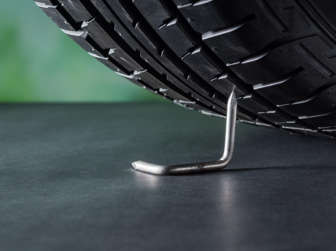Running out of petrol can be a frustrating situation, especially if you’re in a dangerous area or you’re in a hurry to get somewhere. If you get stranded on the side of the road because you’ve run out of petrol, follow these steps:

Safety is your biggest concern if your vehicle runs out of petrol, especially if you’re driving on a highway. If you think you’re about to run out of fuel and you’re driving on a highway, drive in the lane closest to the emergency lane. If your car starts spluttering, turn on your hazards to alert other drivers.
Conserve petrol by turning off the air conditioner and try to drive at around 30 to 45km per hour. If you have an old car, it might make sense to put the car in neutral while you “coast” along, but for newer cars, this is not necessary or even advisable.
If your car is about to stop, make sure you’re parked safely in the yellow lane and keep your hazards on. Immediately contact a friend or family member to let them know where you are. If you drive a petrol vehicle, ask a friend to bring you at least five litres of petrol to get you moving again. Diesel cars require more specialist care if you run out of fuel, so its best to call roadside assistance rather than filling your car.
If you’re unable to contact friends or family, contact your insurance company or a roadside assistance company. Many insurers include this service as part of their offering. Did you know that a Service Plan or Maintenance Plan through MotorHappy includes roadside assistance? Roadside assistance includes delivering a canister of fuel wherever you are, so you can reach the nearest petrol station and re-fuel your vehicle.

The more times a vehicle runs out of fuel, the higher the possibility of damaging the vehicle’s fuel pump system. The age of the vehicle is also very important. This is because older cars eventually build up old fuel debris at the bottom of the fuel tank, which is usually blocked by fuel filters. When your vehicle runs out of fuel, it drains every last bit of fuel and can even manage to get the old dirty fuel particles in the fuel pump system, which could cause it to clog the whole fuel system. If the fuel system is blocked, the vehicle will struggle to start once new fuel has been added back into the fuel tank. Generally, if the vehicle does not start then the fuel lines and fuel pump will have to be checked by a mechanic.

Above all, stay calm if you find yourself in this situation. Prevention is the best approach – try to always check that you have enough petrol to complete your journey and also make sure your phone is fully charged so can call for help if necessary.
Remain vigilant of your surroundings while you wait for help to come. If you leave your car, be sure to alert the roadside assistance vehicle of your whereabouts.
Volkswagen boosts its T-SUV range with the new Taigo
How to maximise your car with a Service Plan


